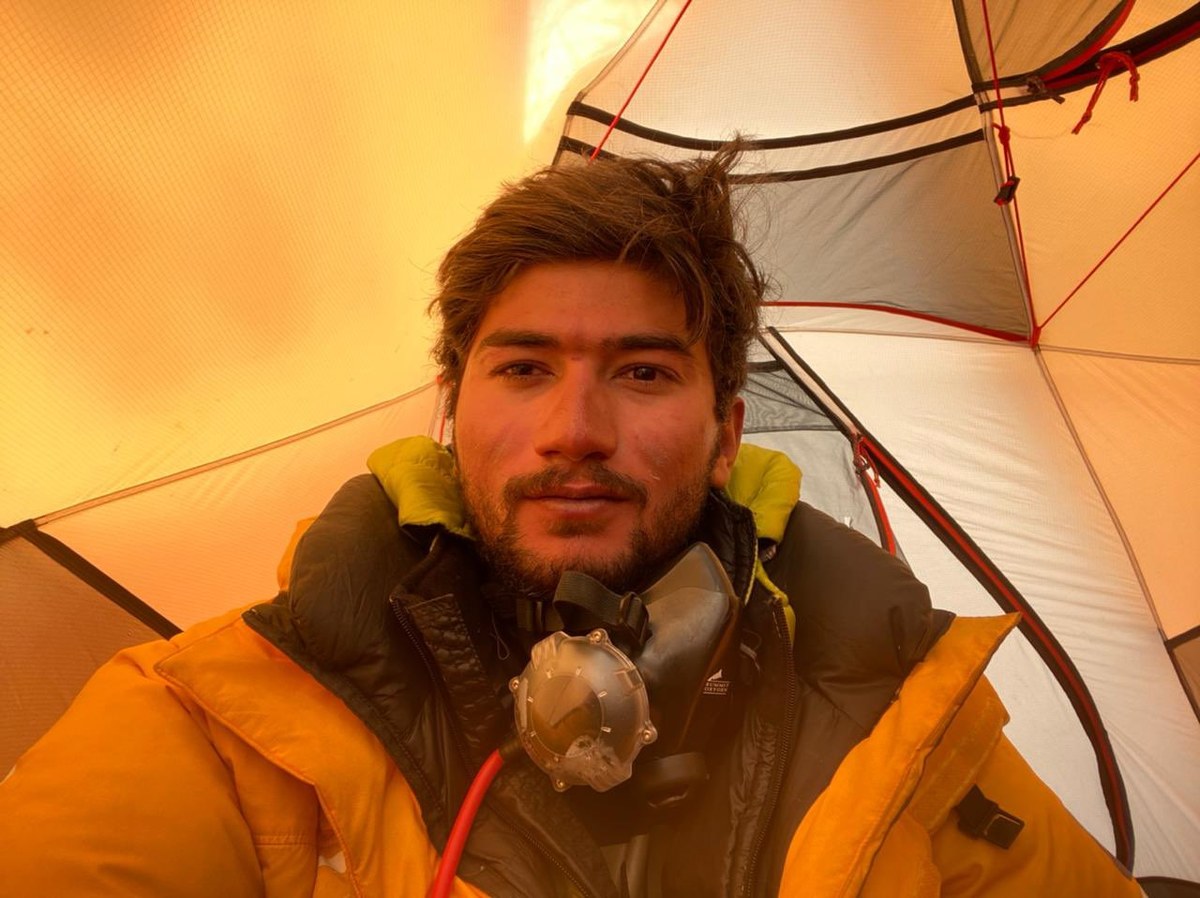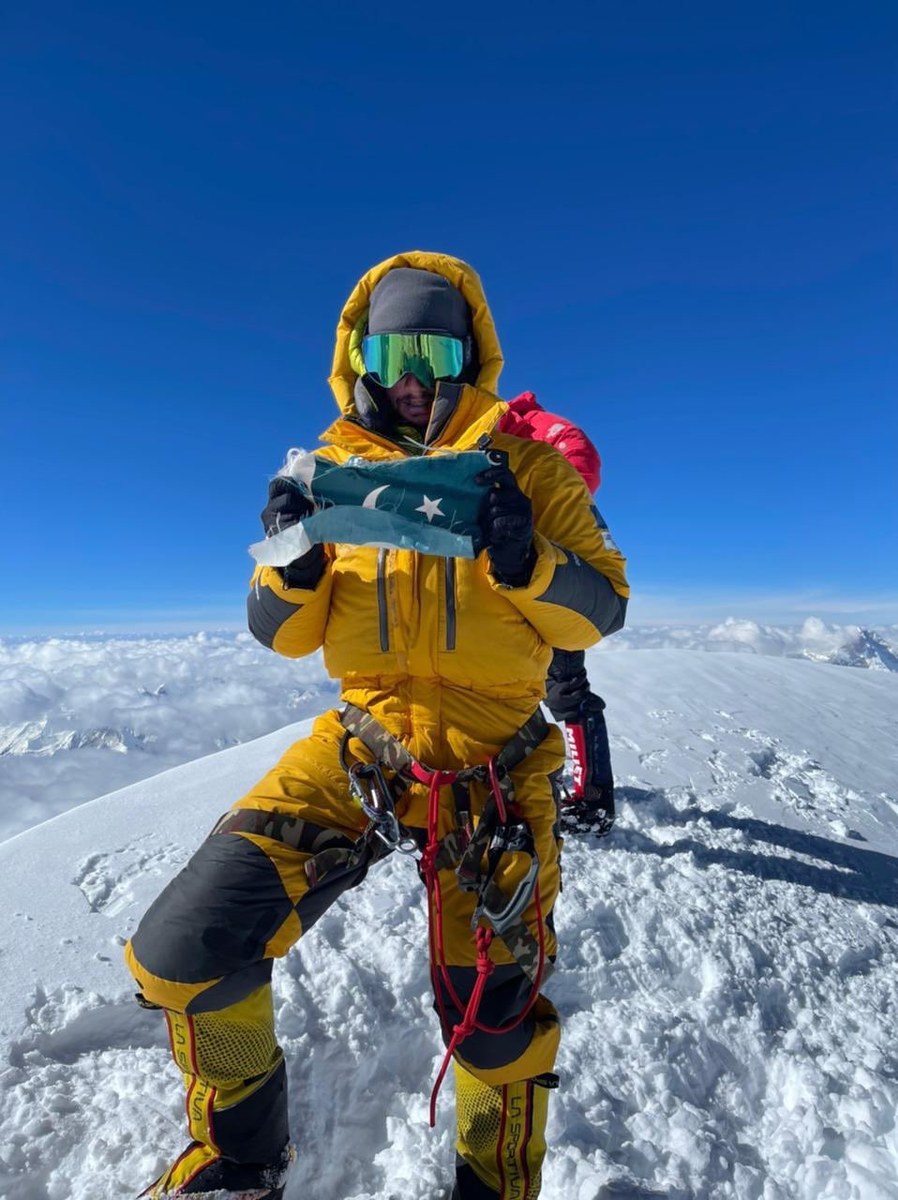SKARDU: Shehroze Kashif, a young Pakistani mountaineer who last week summited K2, said on Sunday he wants to become the youngest climber to scale the world’s 14 highest peaks and plant on them his country’s flag.
Kashif began climbing in his early teens. He scaled the world’s 12th highest mountain, Broad Peak (8,047 meters), at the age of 17. In May 2021, he became the youngest Pakistani to scale Mount Everest (8,849-meters), the world’s highest mountain.
On Tuesday, the 19-year-old made the world record as the youngest mountaineer to scale K2 (8,611 meters), the world’s second highest and most deadly peak known as the Savage Mountain.
His next targets are Manaslu (8,163 meters) and Dhaulagiri (8,167 meters).
“I want to be the youngest in the world to summit all of the 14 (highest) peaks of the world and give my country the title,” Kashif told Arab News in interview in Skardu, Gilgit Baltistan.

Pakistani mountaineer Shehroze Kashif takes a selfie at Camp 4 on K2 on July 26, 2021. (Photo courtesy: Shehroze Kashif)
The 14 peaks at which he is aiming — all above 8,000 meters — are located in the Himalayan and Karakoram mountain ranges — across Nepal, Tibet and Pakistan.
“I feel lucky that God chose me to summit this Savage Mountain, which was my dream. I think I made my country, parents, proud,” he said.
“Both ascending and descending was something so dangerous because you have to climb the house chimney, shoulders and bottleneck and everything. While descending you have to go through all this again.”

Pakistani mountaineer Shehroze Kashif holds Pakistani flag after summiting K2 on July 27, 2021. (Photo courtesy: Shehroze Kashif)
In January, a team of 10 Nepali climbers made history by becoming the first to ever scale K2 in winter.
In February, one of Pakistan’s greatest high-altitude mountaineers, Muhammad Ali Sadpara, went missing while attempting a second winter ascent of K2 with climbers John Snorri of Iceland and Juan Pablo Mohr of Chile.
They were last seen just 300 meters short of the summit of K2 on Feb. 5. It is believed the group reached the summit but encountered a problem on the way down.
Their bodies were found climbers near the bottleneck of K2 last week.
“I was sad when I saw the bodies of our brave climbers,” Kashif said. “He (Sadpara) is a living legend and still alive in our hearts.”















